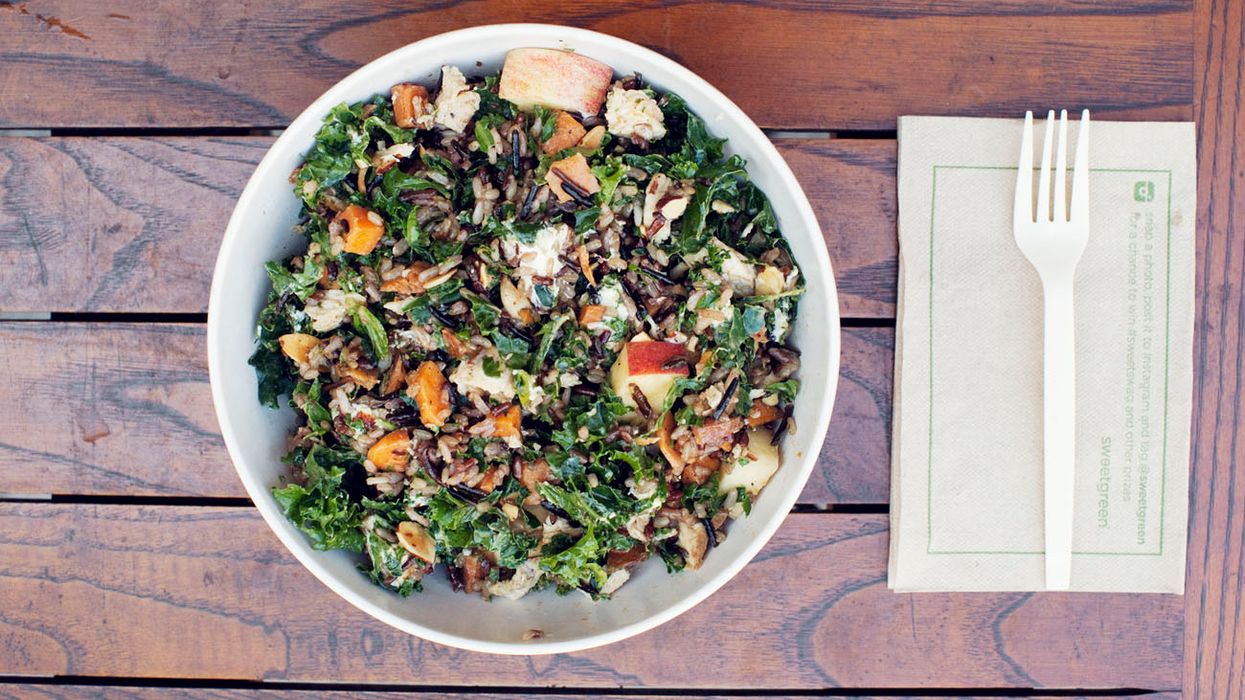
File this under: the last thing you ever thought would happen when you're eating a salad—bloating. But here’s the thing, when stuffing your diet full of vegetables and fruits—and subsequently getting a good dose of vitamins, fiber and protein—there are some varieties that cause you to feel a bit, well, inflated. The good news is, sometimes all it takes to undo the bloat is upping your water intake, cooking vs. eating raw, and slowly building up your veggie and fruit intake. And the other good news? We’ve already laid out some other nifty little de-bloating tricks here, so you don’t need to cut them out of your diet completely—obviously, that would be a really bad idea. So next time your high-waisted Vetements feel like they’ve reached peak stretch post-meal, it might be because of these...
Apples & Pears
Okay, so apples and pears are mega healthy, but part of their healthiness comes from their high fiber content. What fiber also does is slow digestion, causing your midsection to inflate. The fructose in the fruit can also ferment in the stomach, which means you’ll produce a bit more air.
Corn
Another vegetable that likes to ferment itself in your stomach is corn. The carbohydrate type that makes up the kernels isn’t as easy for your body to digest as other types, which equals puffiness.
Cruciferous Vegetables
A.K.A Kale, cauliflower, broccoli, cabbage, Brussels sprouts et al. As in, the base of all our salads, mostly because they are insanely healthy (containing essential nutrients, fiber, vitamin C, vitamin K, iron and potassium), and are delicious. So before you write them off because their raffinose and fructan produce methane, carbon dioxide, and hydrogen in your lower intestine and lead to gas, consider just dealing with it.
Onions
Love ‘em or hate ‘em, onions are a superfood. But the complex sugars in them don’t break down easily. So repeat after us: onions will make you bloat.




